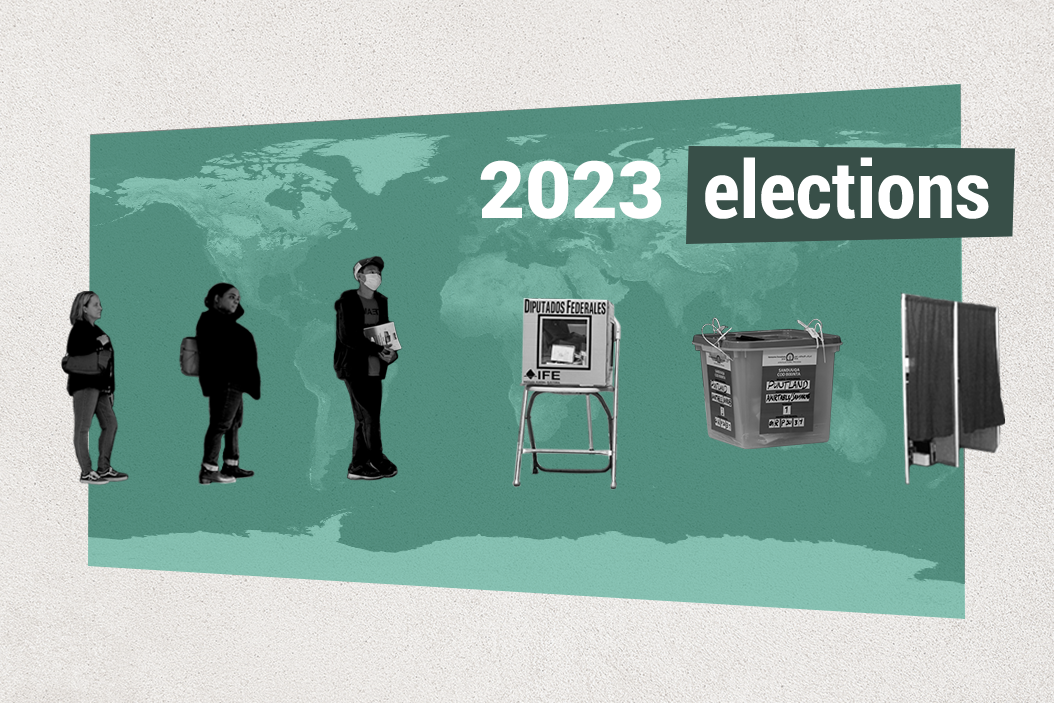In 2022, voters in South Korea, France, Kenya, Brazil, the United States and other countries produced some dramatic and consequential election results.
Here are four major elections to watch in 2023.
Nigeria (Feb 25)
Nearly 100 million voters in Nigeria, Africa’s most populous country, will head to the polls in February to choose a new president, and because this country is Africa’s political heavyweight and largest economy, outsiders will be watching closely. The incumbent, Muhammadu Buhari, is term limited. In his place, Bola Ahmed Tinubu, a former governor of Lagos, the country’s most populous state, has won the internal fight to lead the incumbent All Progressives Congress Party.
Tinubu’s toughest challenge will come from former VP Atiku Abubakar, the political veteran who will lead the People’s Democratic Party. The wildcard is a wealthy businessman called Peter Obi, who brags that he owns just one watch and carries his own suitcases. The winner will lead a country with more than its share of economic and security problems, but he’ll first have to prove his government can attract foreign investment and collect a lot more in taxes to pay for major infrastructure upgrades, investment in agriculture, and social programs for the poor. He’ll also have to ensure that as little as possible of that much-needed revenue is stolen.
Turkey (June 18)
President Recep Tayyip Erdogan, who has dominated Turkey’s politics for more than 20 years, may face his toughest political challenge yet in general elections next June. That’s in part because his unorthodox monetary policies have helped create big problems for Turkey’s economy. Unemployment now stands at 10% and inflation tops 80%. His popularity has waned as a result, and he’s had to work harder, with the help of politically aligned judges, to shift Turkey’s political playing field in favor of his Justice and Development Party.
The most recent example is this week’s decision by a Turkish court to imprison Istanbul Mayor Ekrem Imamoglu and to ban him from politics on charges he insulted election officials. Imamoglu, widely considered a lead challenger to Erdogan in June’s elections, may win this one on appeal, which will take years. But even before Erdogan faces voters, and probably Imamoglu, next June, he may well pick more fights with the EU, launch military operations against Kurdish groups at home (and maybe in Syria), and create other diversions that could boost his popularity at just the right moment.
Pakistan (by Oct 12)
Imran Khan has had a rough year. In April he was ousted as prime minister by a parliamentary vote of no-confidence. In May, a protest march he led against the decision turned violent. In October, a court banned him from politics for five years. In November, he was shot during a political rally. Despite all this, Khan is determined to force early elections – which must be held in Pakistan by October 12 – to win back the job he lost to political rival Shebhaz Sharif. Behind all this political intrigue is a country deeply in debt, struggling to recover from severe flooding that displaced an estimated 33 million people and exacerbated an energy crisis. These problems would be easier to address if Pakistan’s politics were more stable. Consider that the next prime minister to finish their elected five-year term would be the first in history to do so.
Argentina (Oct 29)
Cristina Fernandez de Kirchner has had a tough year as well. In September, she too survived an assassination attempt. Then, earlier this month, the former president, now vice president, was convicted of corruption charges, sentenced to six years in prison, and banned from politics for life. (She’ll remain in office, because her appeal will take years.) None of this is likely to make her less popular with her devoted followers, and though she won’t be a candidate for president next October, the campaign role she does decide to play could make a big difference for President Alberto Fernandez. Though it won’t be easy to win re-election in a country where price increases are expected to hit 100% by the end of this year, the incumbent hopes coming months will bring better economic news, helping him beat back challenges from within his center-left Everyone’s Front, as well as from center-right and populist-libertarian opposition parties.
You’ll be reading much more from us on all these stories in the coming year.

